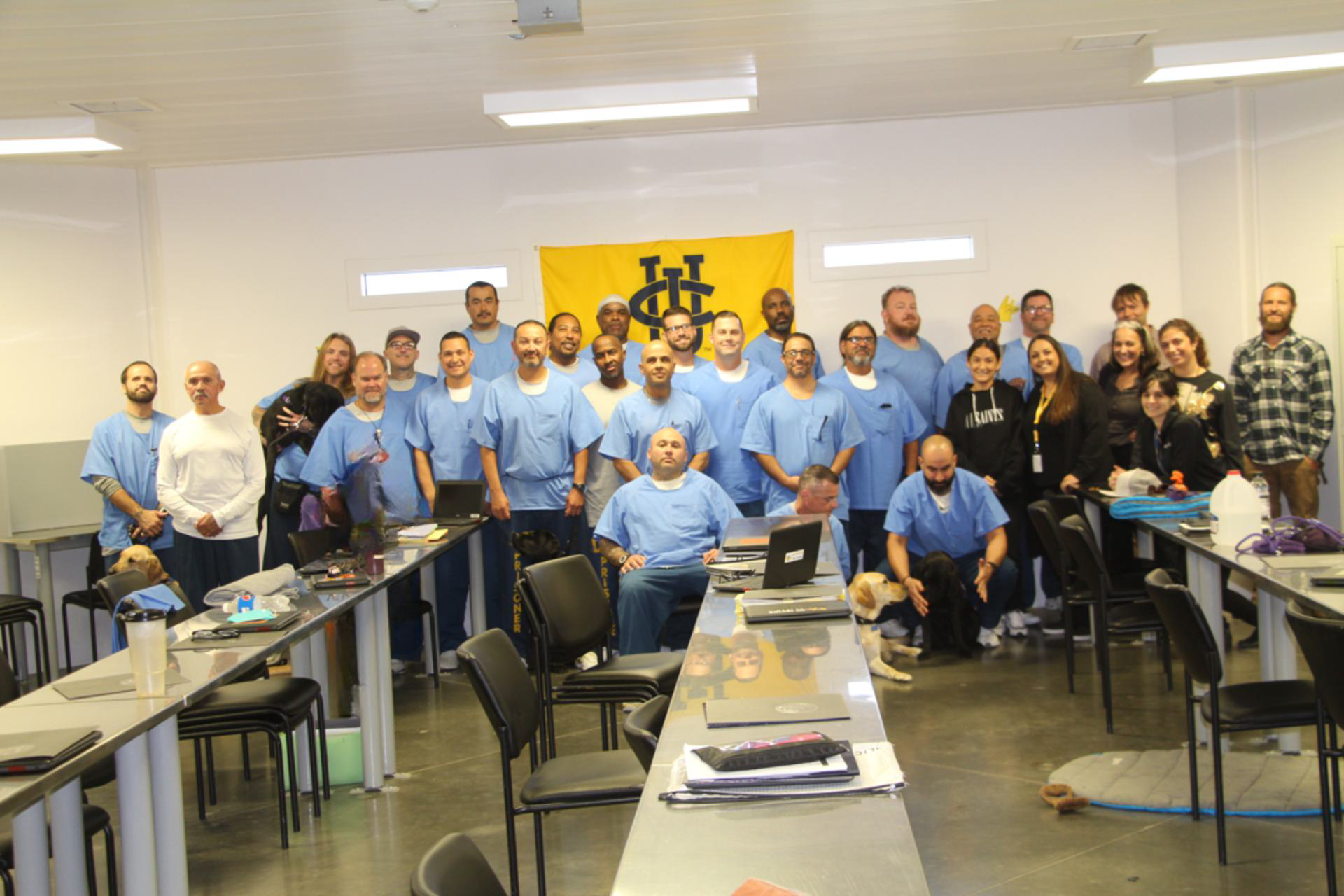CS Education in Prisons
My doctoral thesis research, improving computer science education for incarcerated college students
The main focus of my Ph.D. research has been improving computing education in prisons. As part of this research, I’ve had the opportunity to teach several courses for UC Irvine’s LIFTED college-in-prison program: I have taught Introduction to Programming in Python for each of the cohorts (Fall 2022 and 2023), as well as Statistics I and II during Summer 2023. Below is a photo of me with students from the first cohort, as well as the other LIFTED staff, at a first quarter wrap-up celebration in the prison.

The first formal publication on this work, entitled “Challenges and Approaches to Teaching CS1 in Prison” (Hogan et al., 2024), is an experience report on the first offering of the CS1 course in prison. This was accepted to the ACM Special Interest Group on Computer Science Education (SIGCSE) conference held in March 2024, one of the top venues for CS education research. In this paper, co-authored by Ruoxuan Li and my advisors, we outlined our “design experiment methodology” approach to teaching the course, which involved collecting and adapting to feedback from the students during the course. As an example, we discuss the decision to change the strict collaboration policy a few weeks into the course after realizing the infeasibility in an environment where students have few avenues for help besides each other. Included in the paper is a qualitative analysis of the students’ perspectives on an ideal collaboration policy for the course. Another primary contribution of this work is a documented collection of lessons learned, discussing what strategies worked and what we planned to do differently the next time.
This paper also includes a thorough description of the prison context where I have been teaching during my doctoral studies. One of the most significant features of this particular site as it relates to CS education was that students did not have access to code interpreters of any kind. Therefore, much of the work in adapting the course was finding alternative ways to facilitate the critical student learning that happens in the debugging process. Some of these strategies included compiling a list of “Common Errors” with explanations and examples to enable efficient and more thorough feedback on student code submissions, and creating a workflow where students would drop off handwritten code in a box to be run and have the output returned to them 2-3 times weekly. I was grateful to have the opportunity to present on these issues and potential solutions at the 2023 National Conference on Higher Education in Prison, where I was able to connect with people around the country who shared an interest in expanding STEM and technology education in prisons around the country. Every prison is unique, and I recognize that the challenges and affordances of this environment and the perspectives of these particular students are not representative of all prisons. That being said, my hope for this initial work is that it generates interest in the broader CS education community to get involved in teaching more CS courses in higher education in prison programs regardless of limited technical infrastructure.